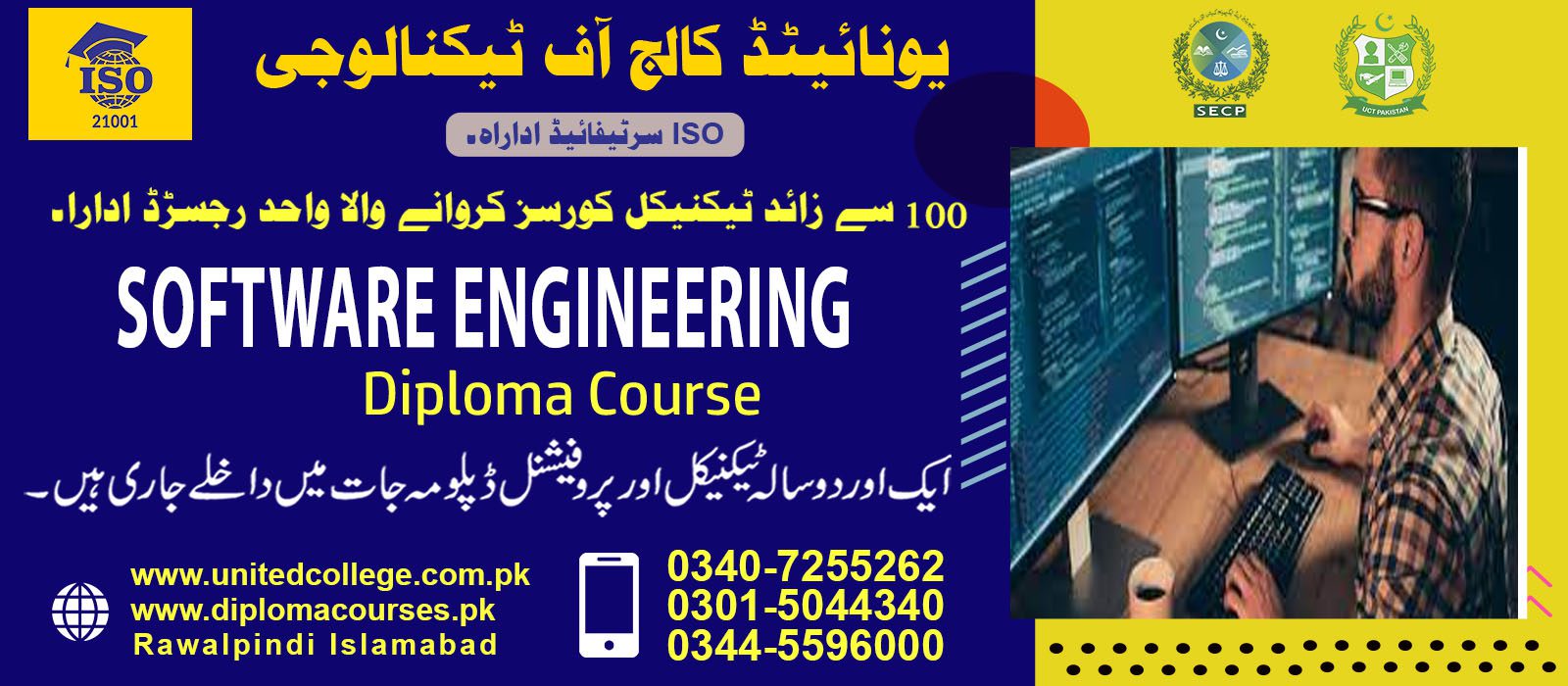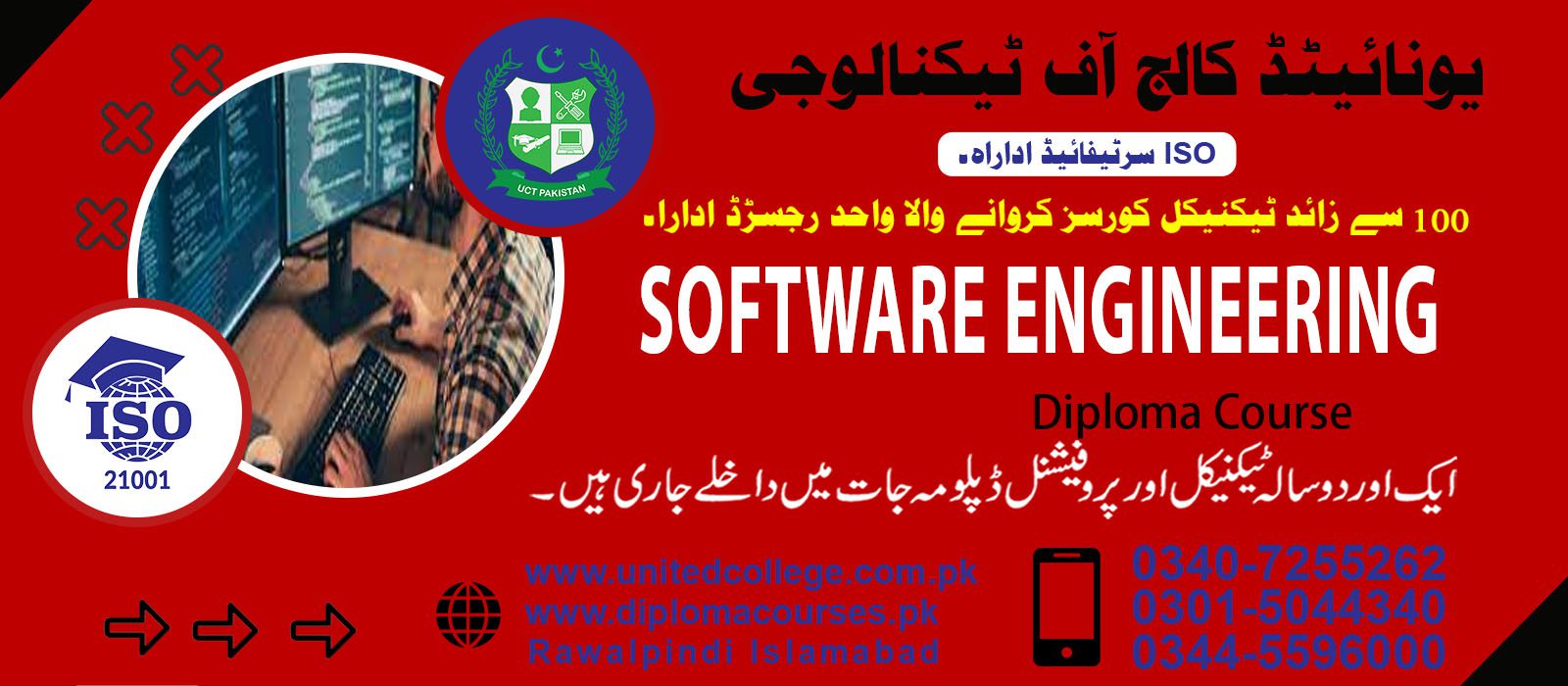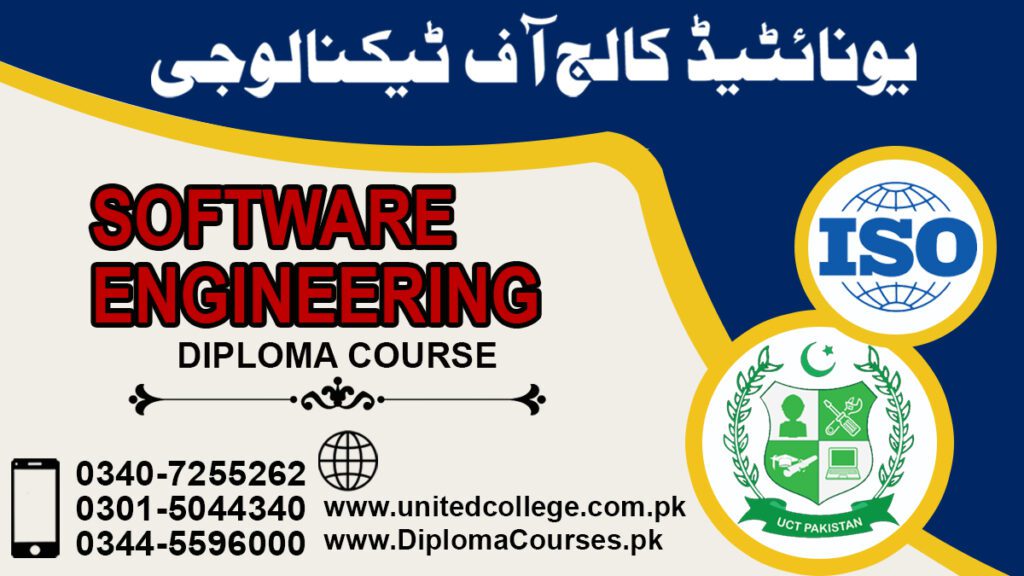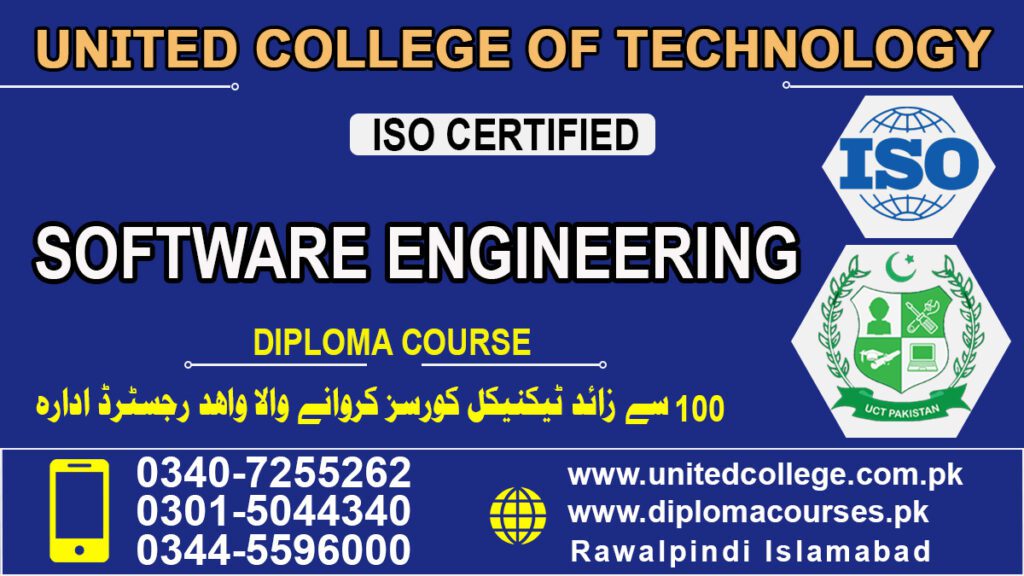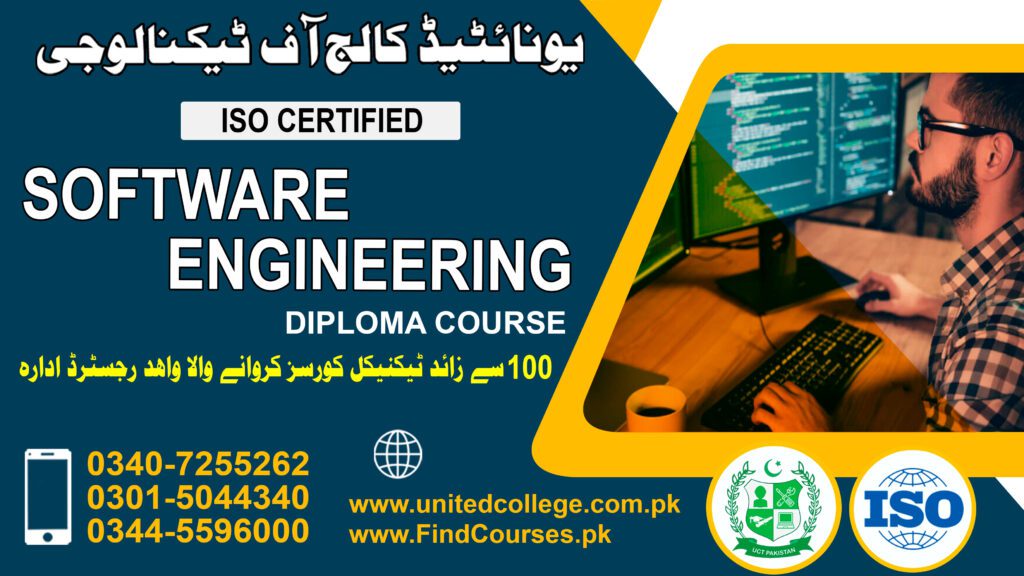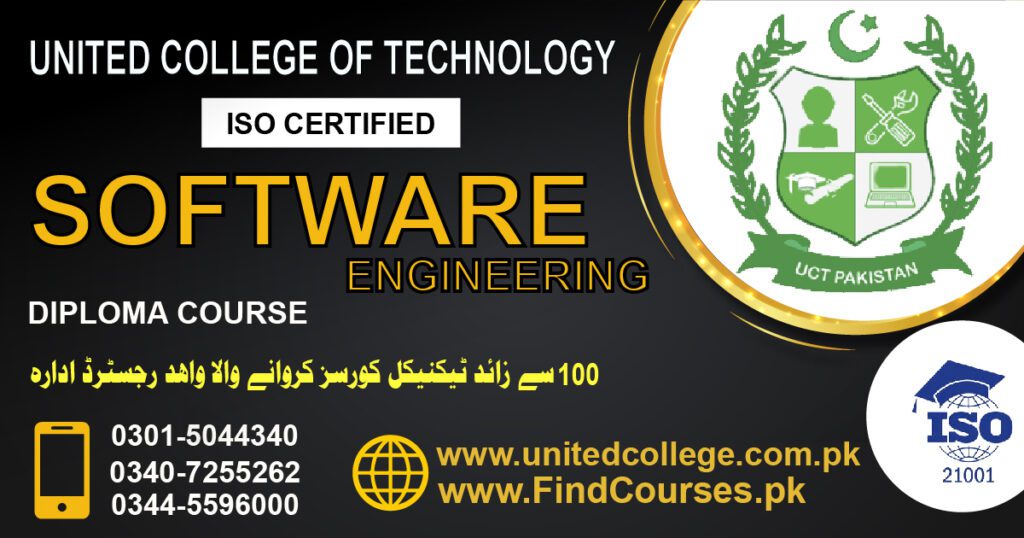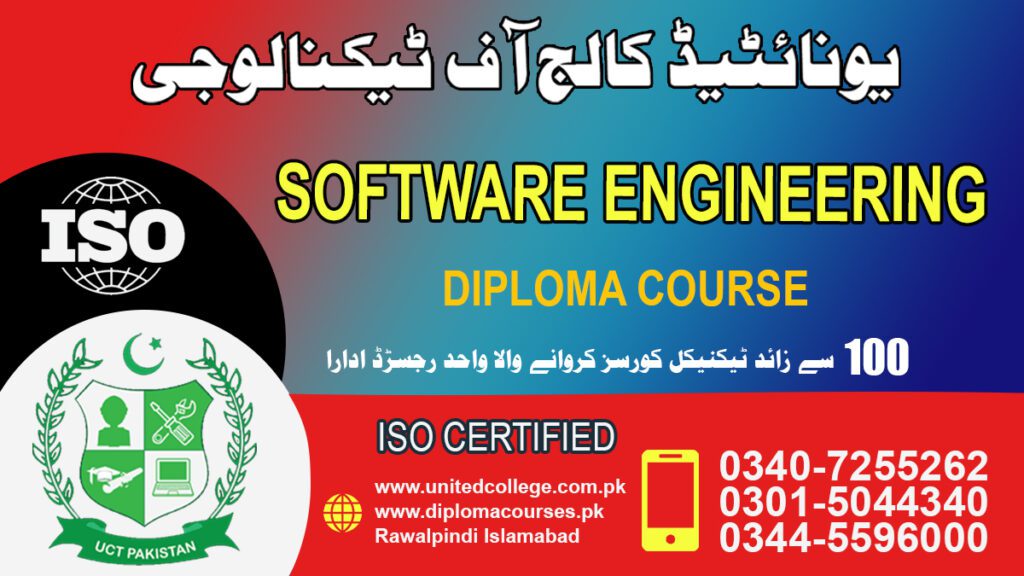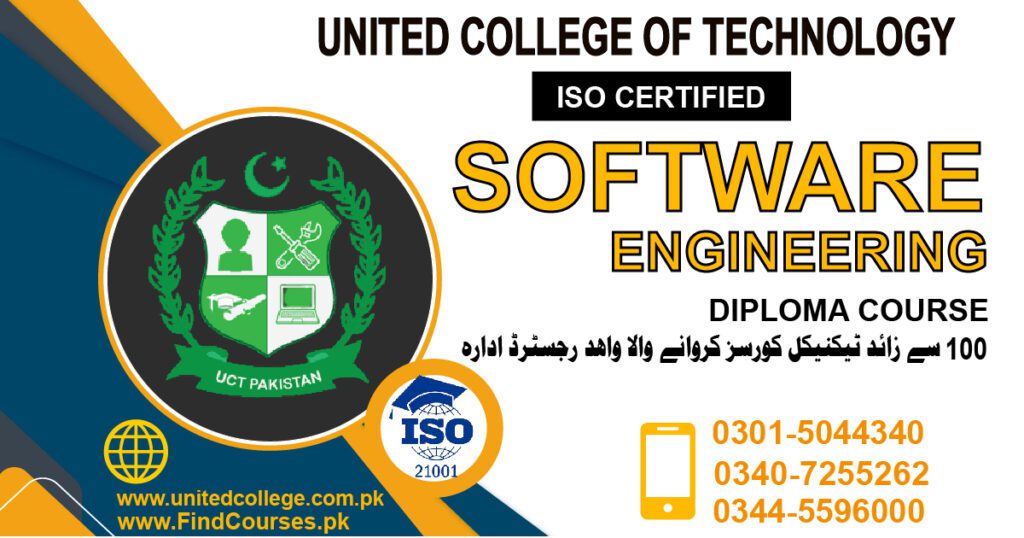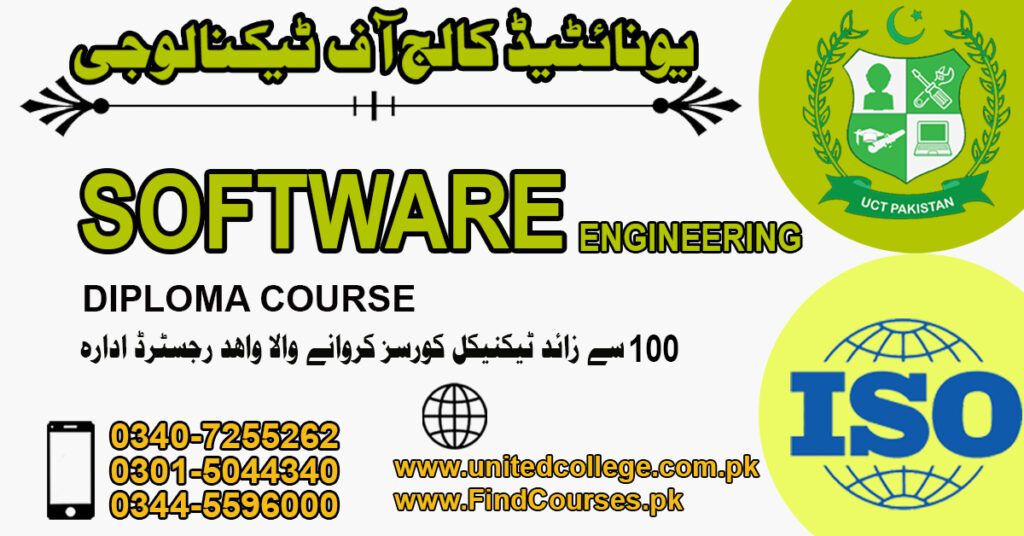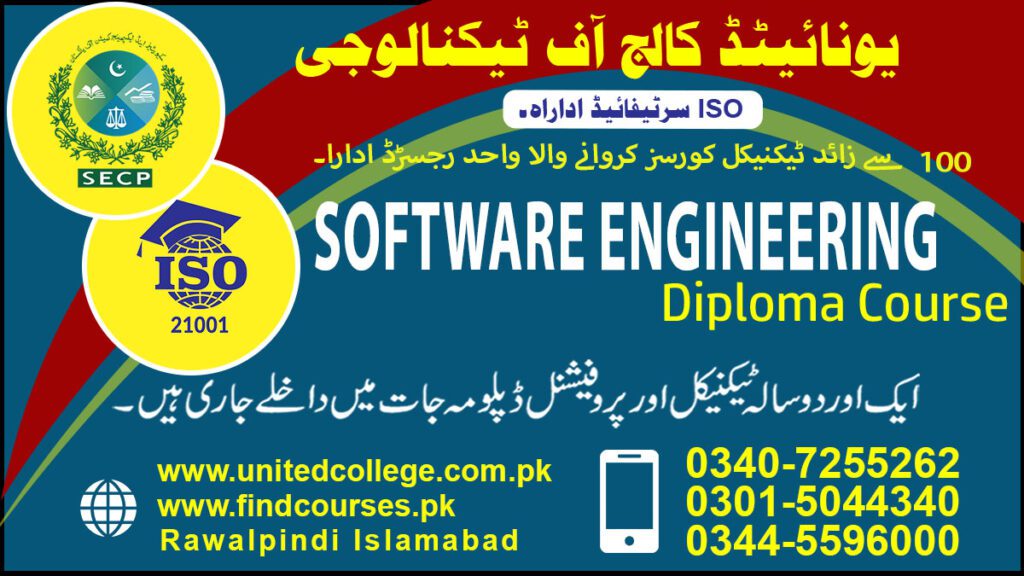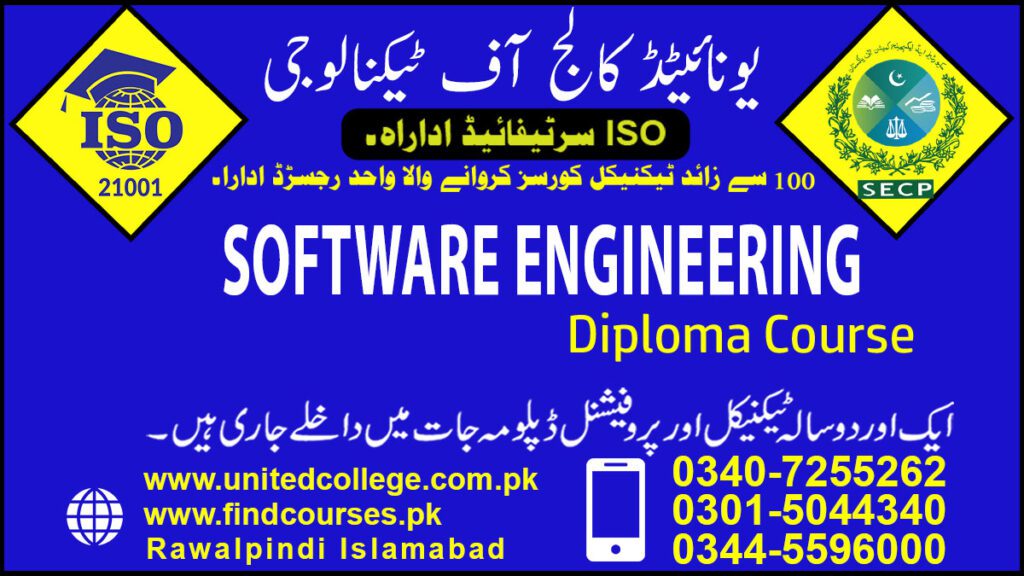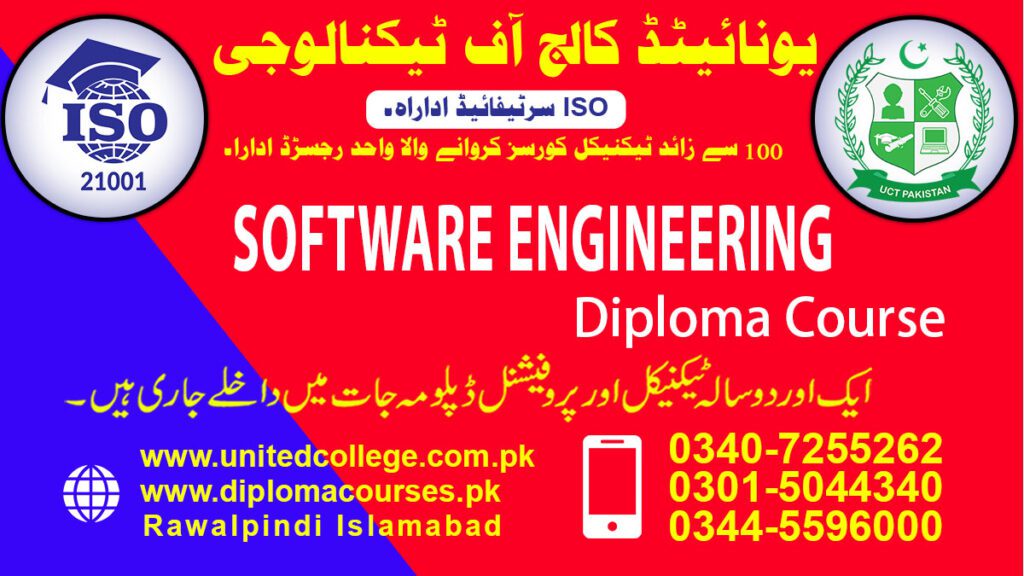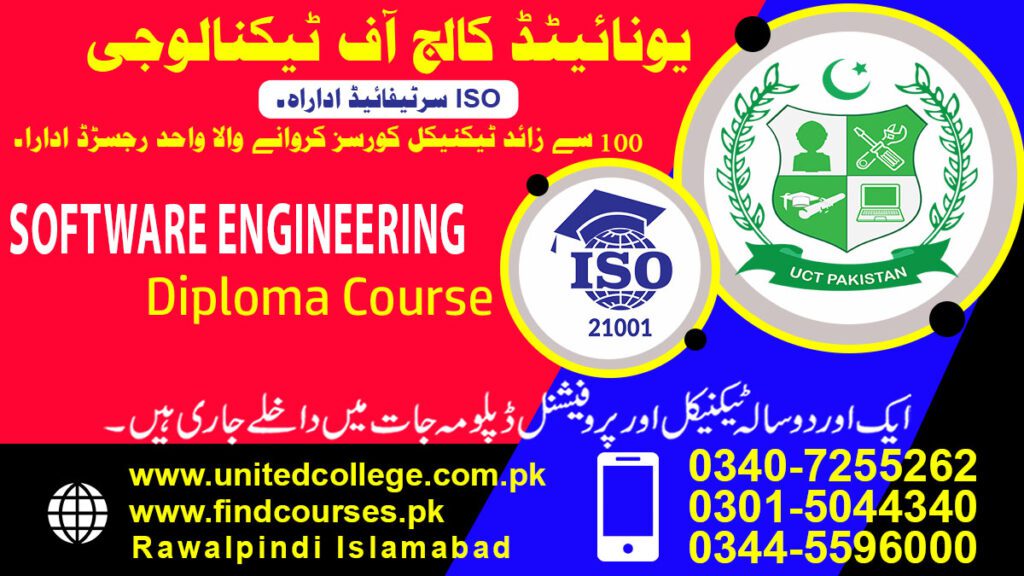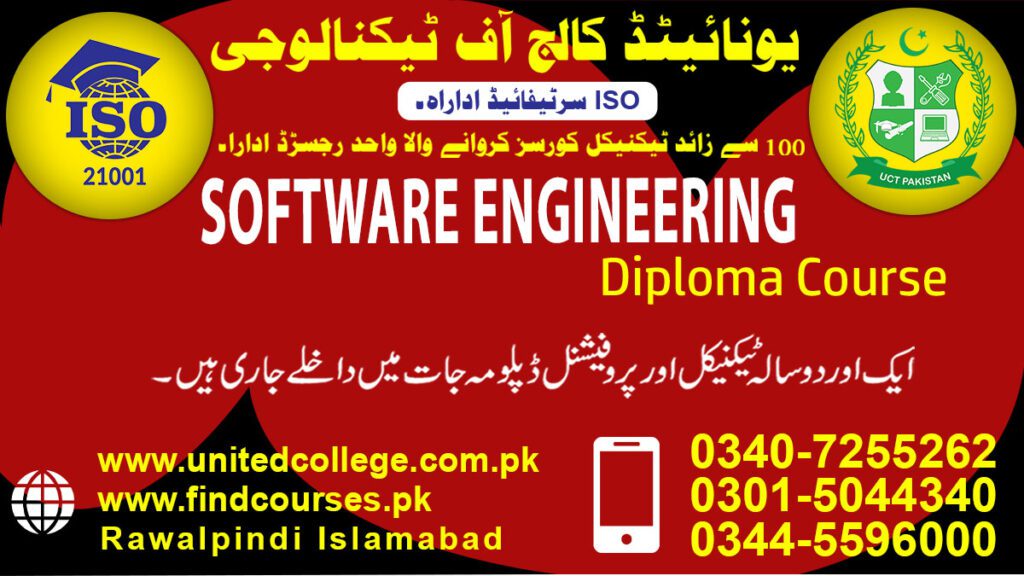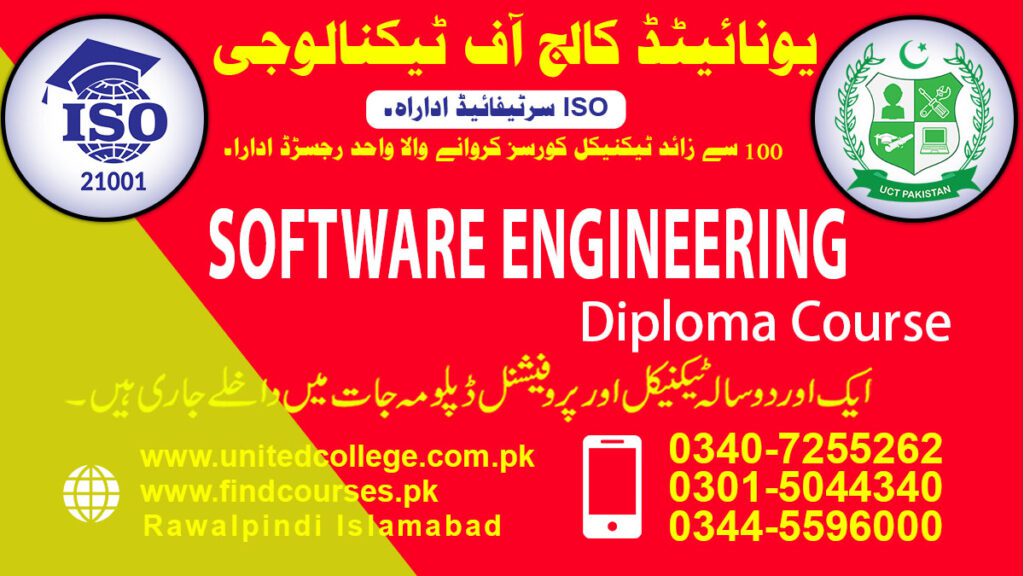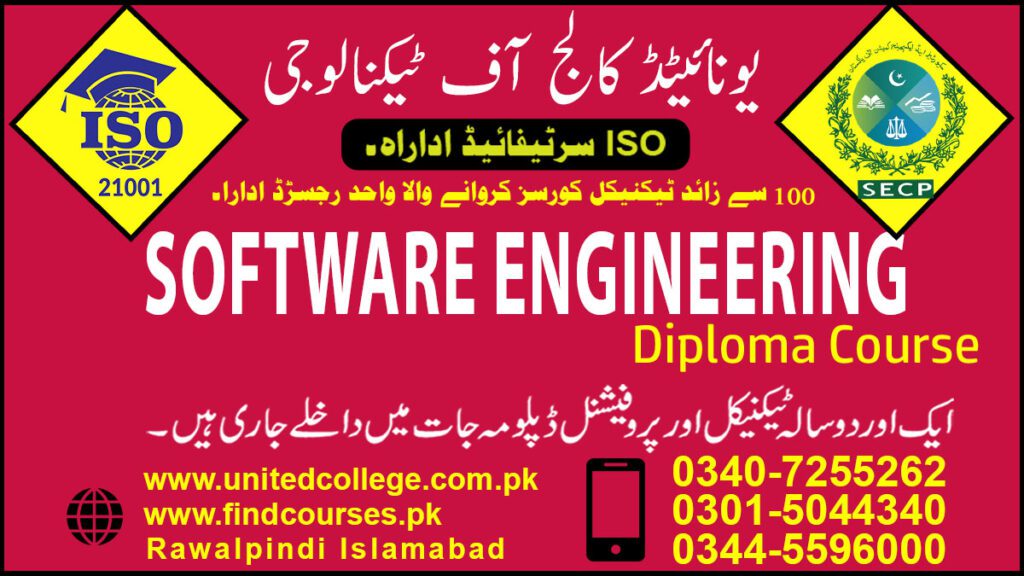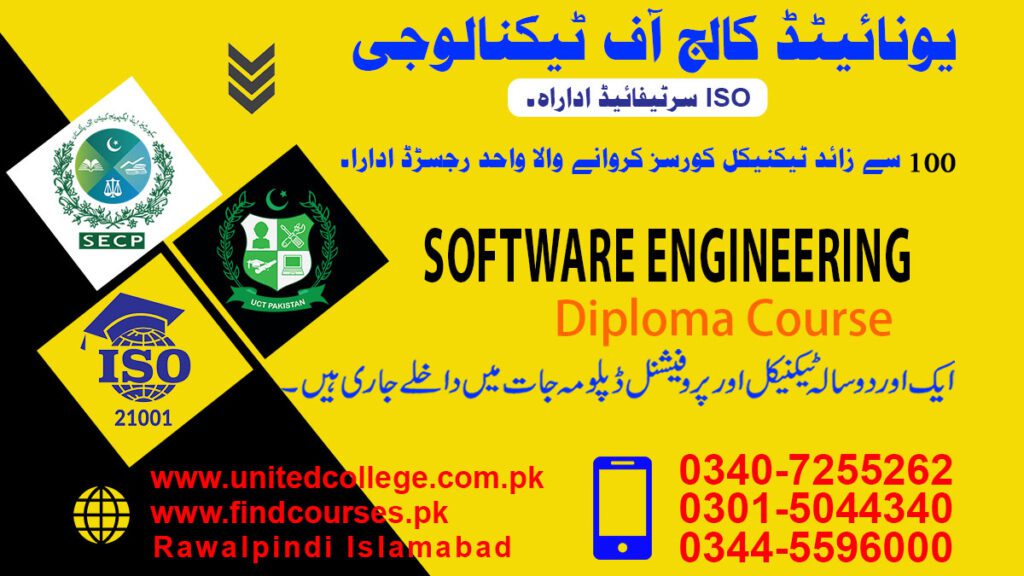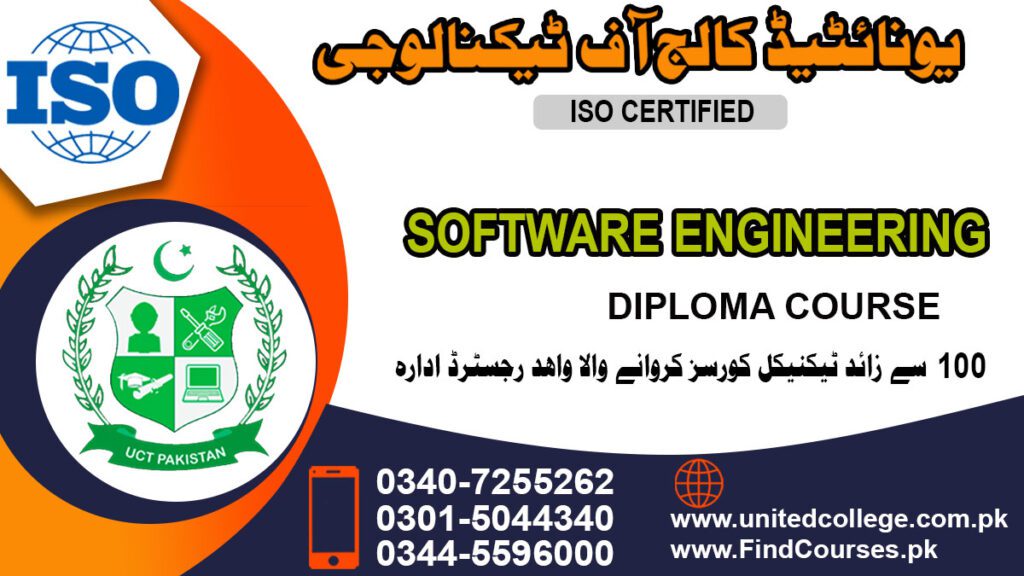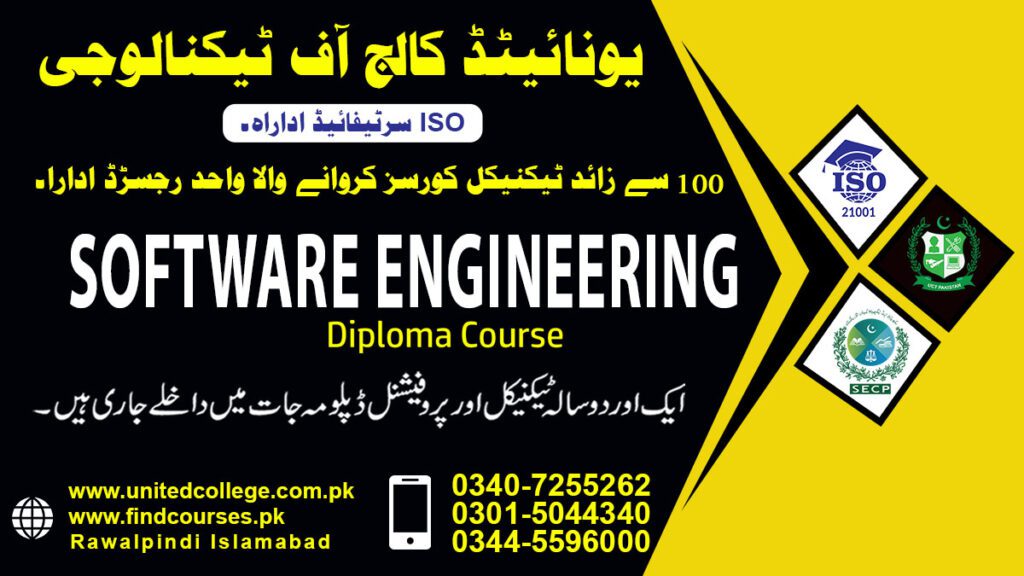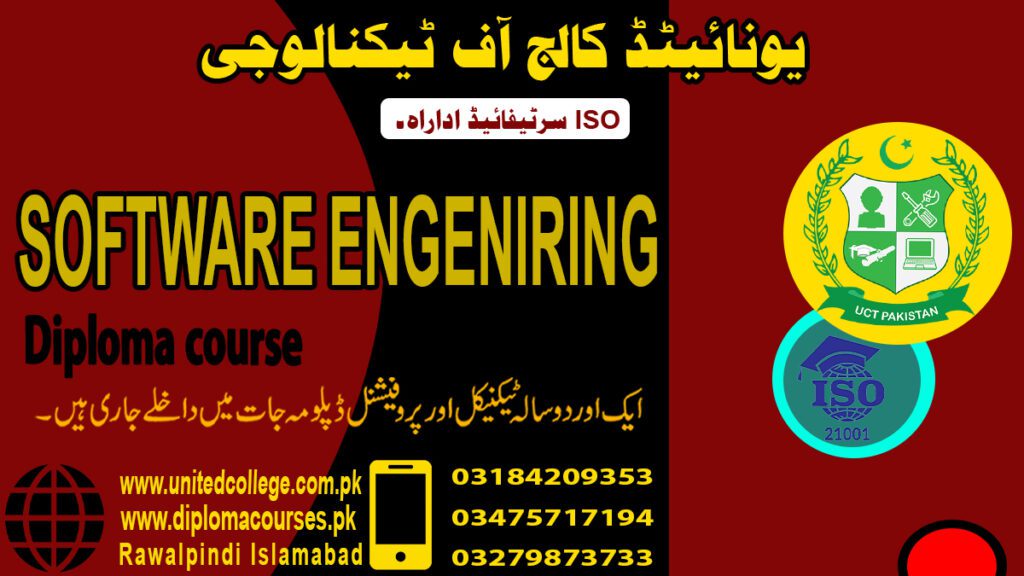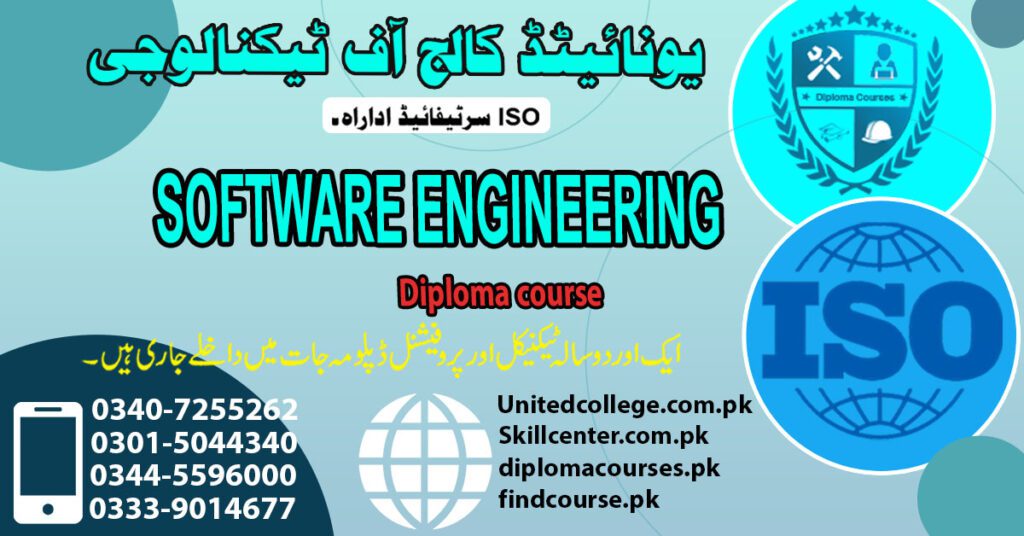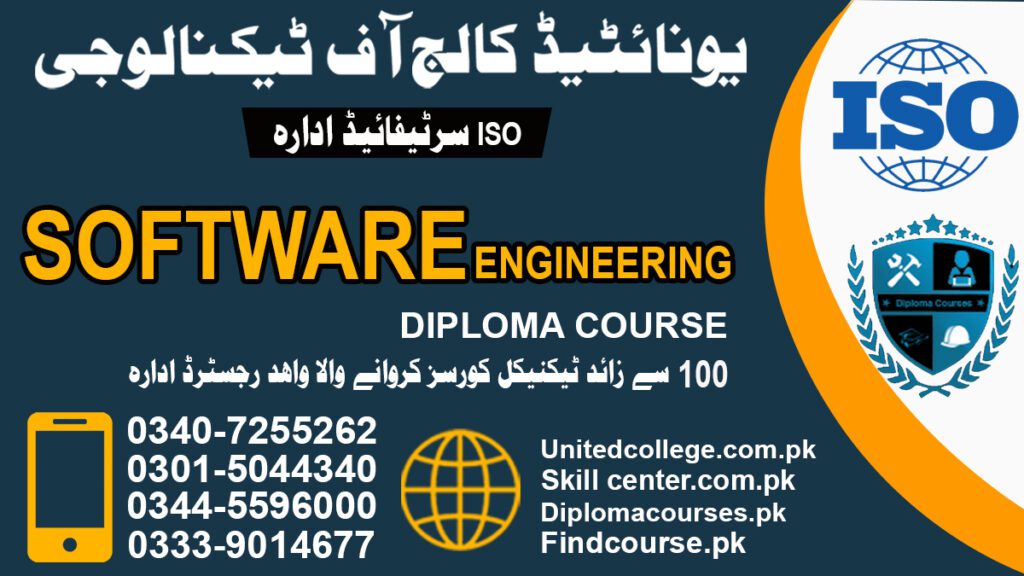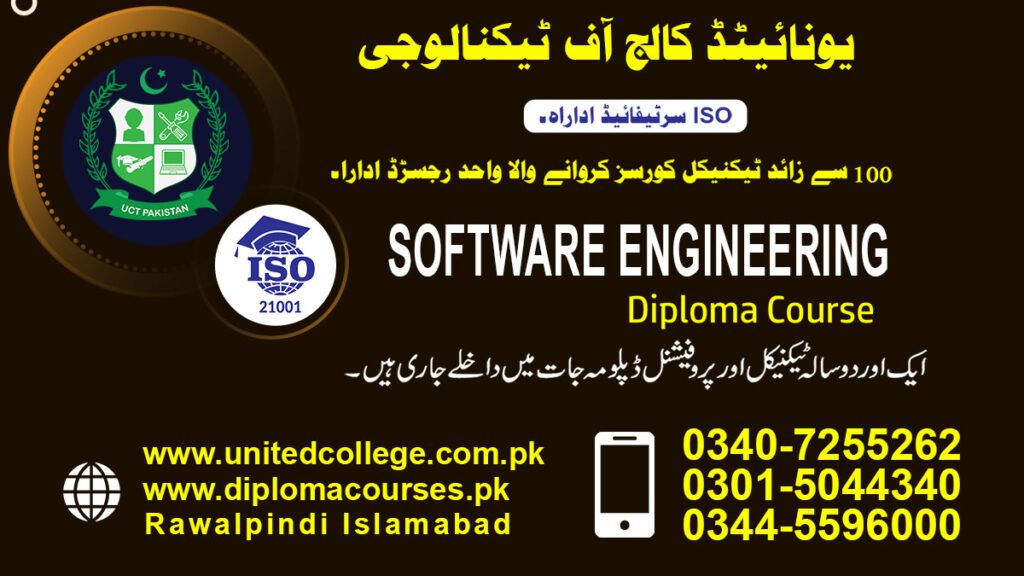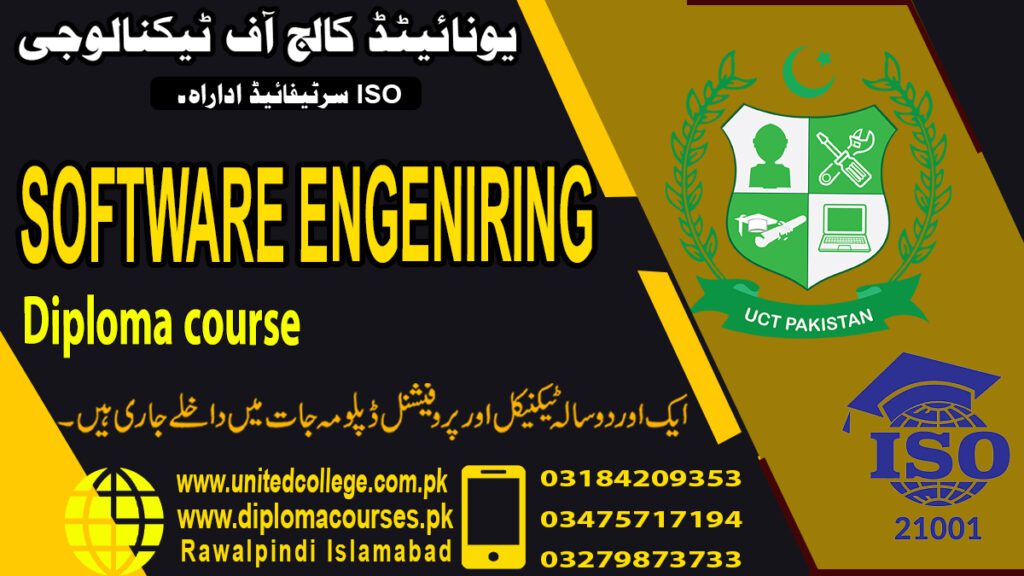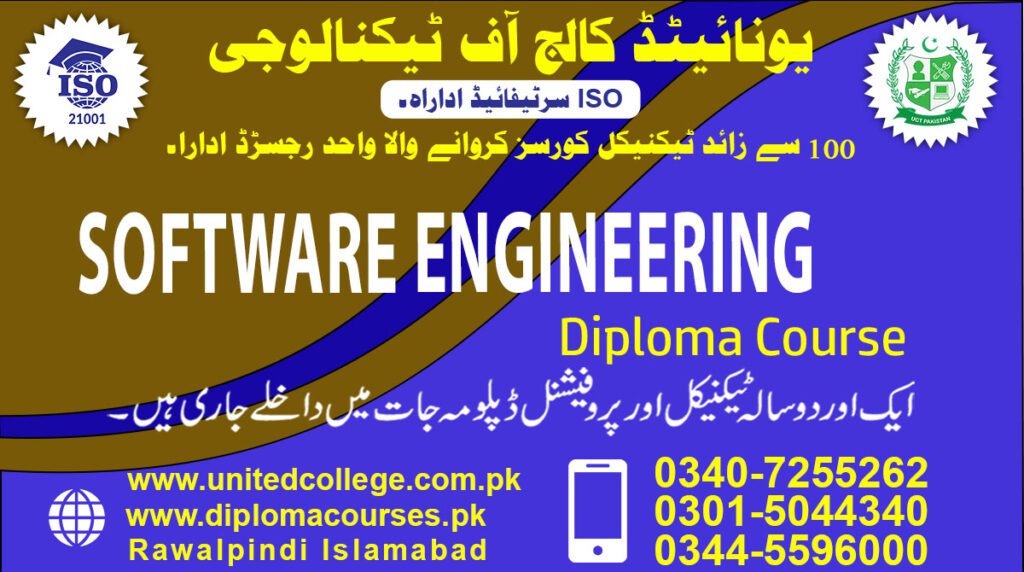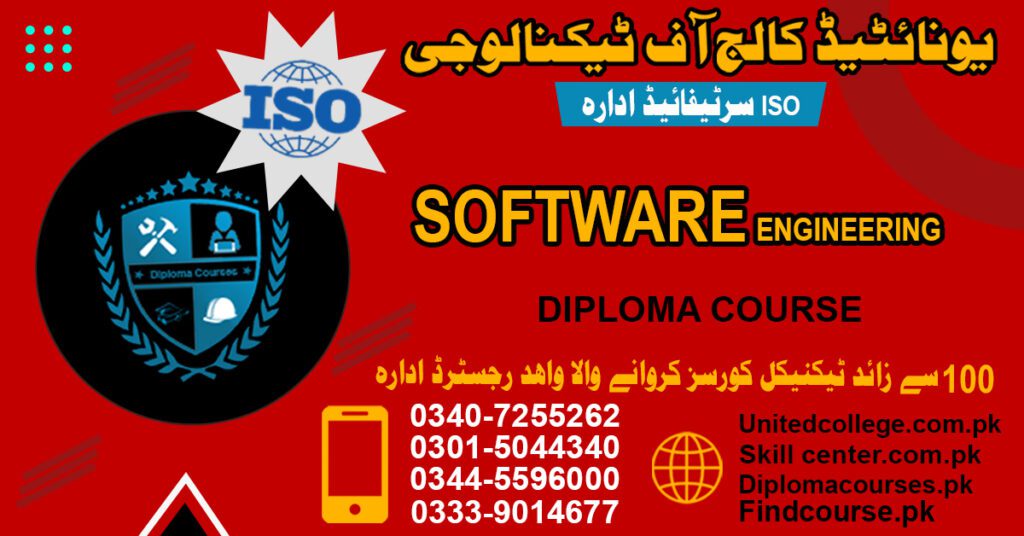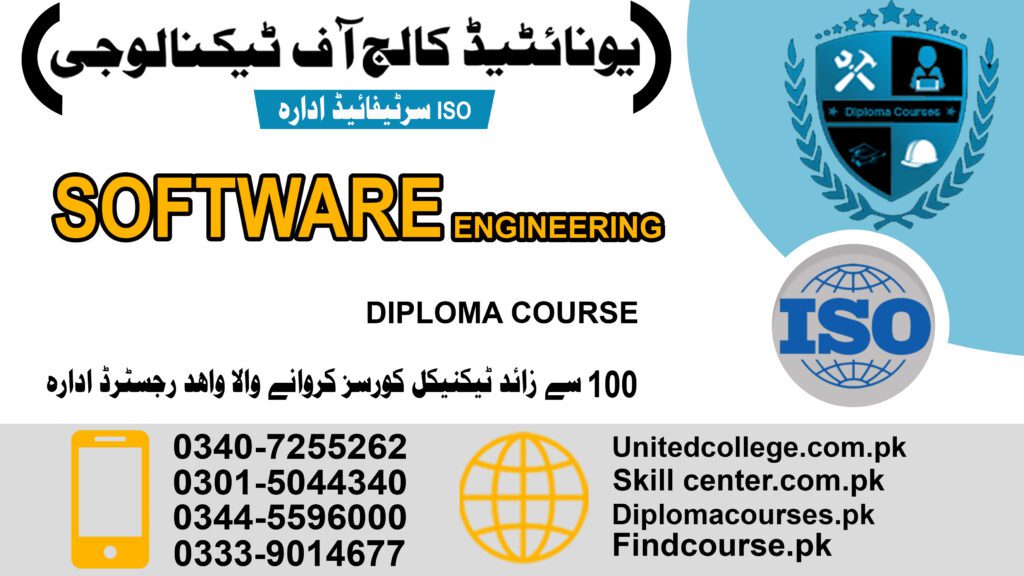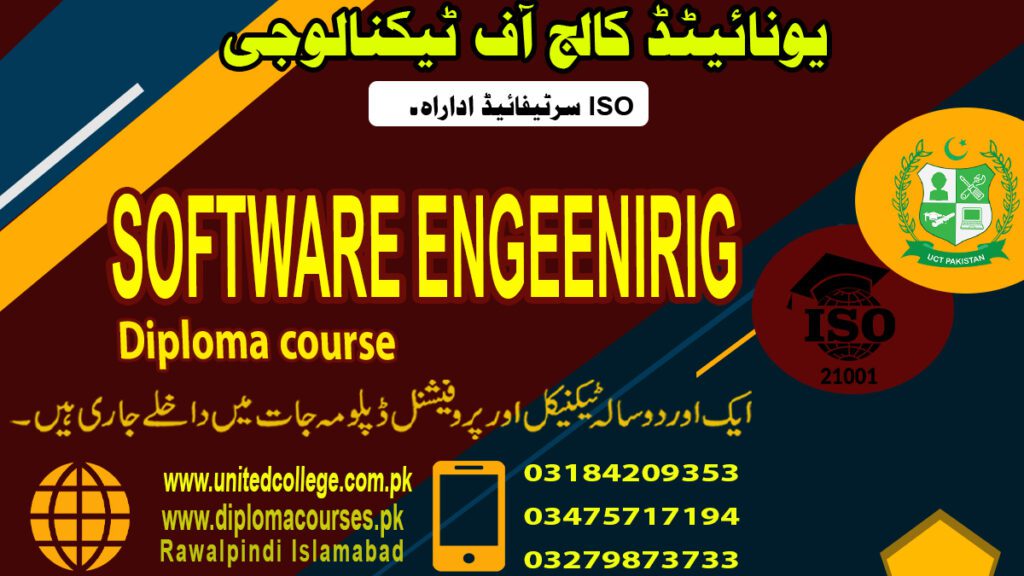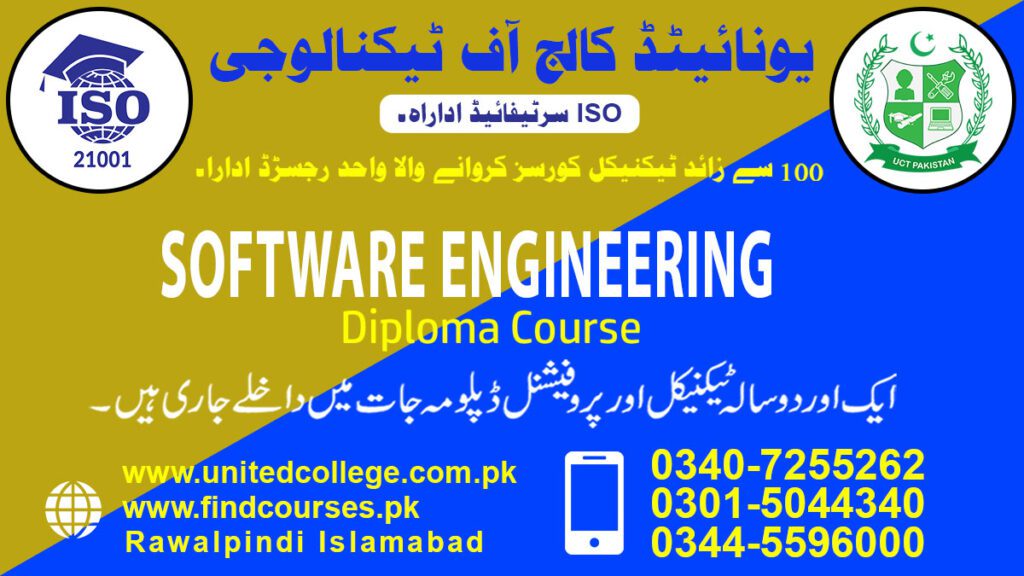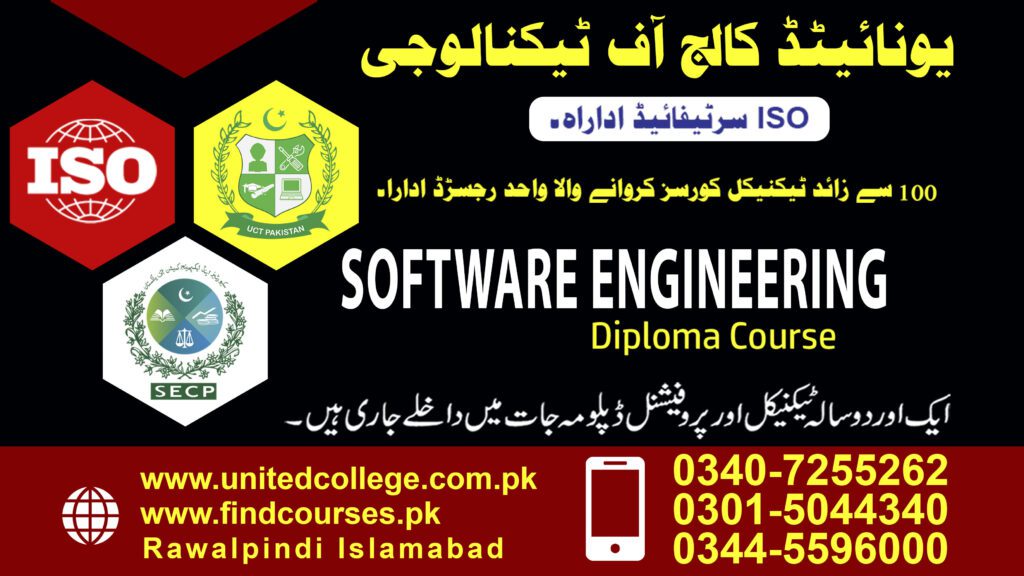SOFTWARE ENINEERING COURSE IN RAWALPINDI ISLAMABAD PAKISTAN

Software Engineering Diploma Course in Rawalpindi Islamabad Pakistan 0344-5596000
Introduction:
Welcome to the Software Engineering Course. This course is designed to provide you with a solid foundation in the principles, concepts, and practices of software engineering. Whether you are a beginner or an experienced programmer looking to enhance your skills, this course will equip you with the knowledge and tools necessary to develop high-quality software systems.
Throughout the course, you will learn about various aspects of software engineering, including software development methodologies, requirements engineering, software design and architecture, programming paradigms, software testing and quality assurance, and project management. You will also gain insights into emerging trends and technologies in software engineering.
Here is an introduction to the topics covered in the Software Engineering Course:
- Introduction to Software Engineering
- Overview of the concepts and procedures used in software engineering
- Role of software engineering in the development of software systems
- Software development life cycle models and methodologies
- Requirements Engineering
- Gathering, analyzing, and documenting software requirements
- Requirements validation and management
- Techniques for eliciting and prioritizing user needs
- Software Design and Architecture
- Software design principles and patterns
- Architectural styles and patterns (e.g., client-server, MVC, microservices)
- Design documentation and modeling techniques (e.g., UML)
- Programming Paradigms and Software Development
- Overview of different programming paradigms (e.g., procedural, object-oriented, functional)
- Software development tools and environments
- Coding best practices and code quality assurance
- Software Testing and Quality Assurance
- Software testing techniques and strategies
- Test-driven development (TDD) and behavior-driven development (BDD)
- Software quality metrics and quality assurance processes
- Software Maintenance and Evolution
- Importance of software maintenance and the challenges involved
- Software configuration management and version control
- Refactoring and code optimization techniques
- Software Project Management
- Project planning, estimation, and scheduling
- Team organization and collaboration in software development
- Risk management and change management in software projects
- Software Documentation and Communication
- Importance of documentation in software engineering
- Documentation types and standards
- Effective communication in software development teams
- Software Security and Privacy
- Common security threats and vulnerabilities in software systems
- Techniques for secure software development
- Emerging Trends in Software Engineering
- Agile and DevOps methodologies
- Cloud computing and software-as-a-service (SaaS)
- Ethical and Professional Considerations
- Ethical issues in software engineering
- Professional responsibilities and codes of conduct
- Intellectual property and licensing considerations
- Software Engineering Project
- Capstone project to apply the knowledge and skills acquired throughout the course
- Collaborative software development in a team environment
- Project planning, implementation, and presentation
Please note that the specific content and depth of each topic may vary depending on the course provider and the intended audience. Additionally, hands-on exercises, real-world case studies, and practical projects may be incorporated into the course to provide you with practical experience and a deeper understanding of software engineering principles and practices.
Software Engineering Diploma Course Outline:
Module 1: Introduction to Software Engineering
- • A summary of the principles and procedures used in software engineering
- Role of software engineering in the development of software systems
- Software development life cycle models and methodologies
Module 2: Software Requirements Engineering
- Requirements gathering, analysis, and specification
- Requirements validation and management
- Techniques for eliciting and prioritizing user needs
Module 3: Software Design and Architecture
- Software design principles and patterns
- Architectural styles and patterns (e.g., client-server, MVC, microservices)
- Design documentation and modeling techniques (e.g., UML)
Module 4: Software Construction and Coding
- Programming paradigms and languages
- Software development tools and environments
- Coding best practices and code quality assurance
Module 5: Software Testing and Quality Assurance
- Software testing techniques and strategies
- Test-driven development (TDD) and behavior-driven development (BDD)
- Software quality metrics and quality assurance processes
Module 6: Software Maintenance and Evolution
- Importance of software maintenance and the challenges involved
- Software configuration management and version control
- Refactoring and code optimization techniques
Module 7: Software Project Management
- Project planning, estimation, and scheduling
- Team organization and collaboration in software development
- Risk management and change management in software projects
Module 8: Software Documentation and Communication
- Importance of documentation in software engineering
- Documentation types and standards
- Effective communication in software development teams
Module 9: Software Security and Privacy
- Common security threats and vulnerabilities in software systems
- Techniques for secure software development
Module 10: Software Verification and Validation
- Methods used in software engineering for validation and verification
- Formal methods and model-based testing
- Debugging and troubleshooting techniques
Module 11: Software Engineering Tools and Practices
- Software development frameworks and libraries
- • Integrated development environments (IDEs) and troubleshooting tools
- Collaboration and version control systems (e.g., Git)
Module 12: Emerging Trends in Software Engineering
- Agile and DevOps methodologies
- Cloud computing and software-as-a-service (SaaS)
Module 13: Ethical and Professional Considerations
- Ethical issues in software engineering
- Professional responsibilities and codes of conduct
- Intellectual property and licensing considerations
Module 14: Software Engineering Project
- Capstone project to apply the knowledge and skills acquired throughout the course
- Collaborative software development in a team environment
- Project planning, implementation, and presentation
Course Fee: 65,000
Daily Class: 2 Hours
Course Duration: Two Years
Morning / Evening
Call For Registration: 0344-5596000 / 0333-9014677 / 0340-7255262 ![]()



